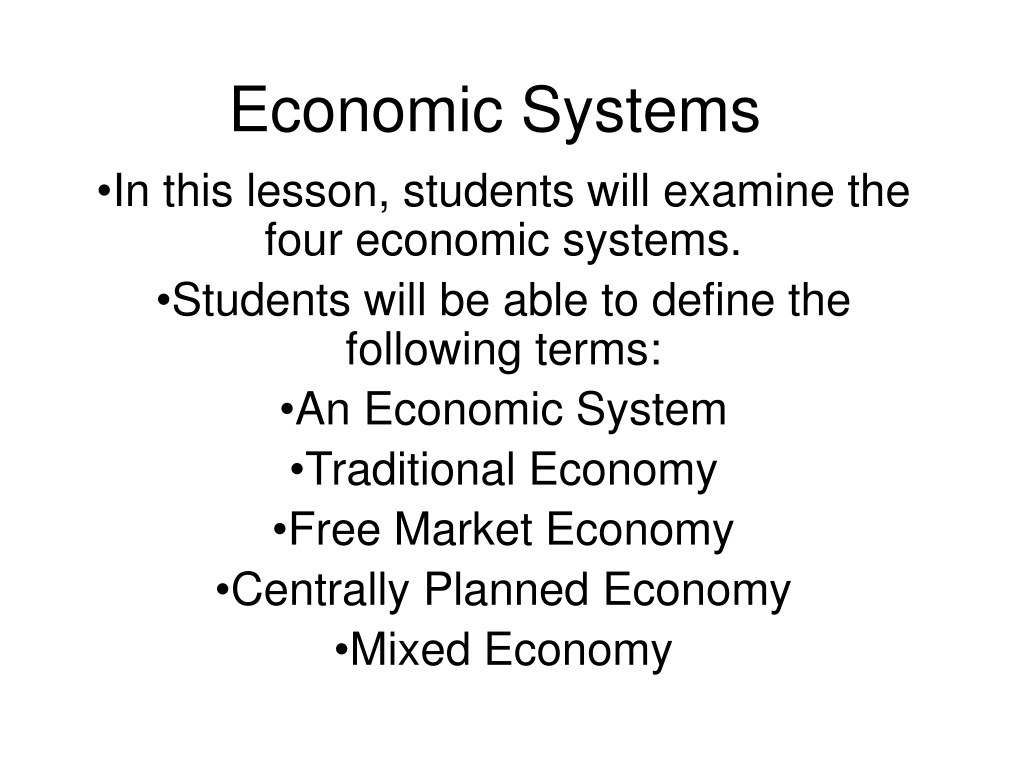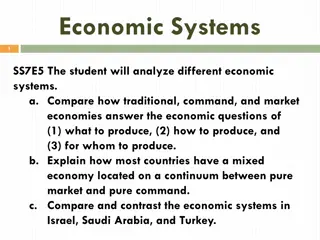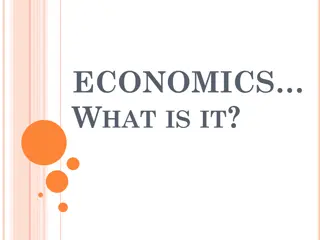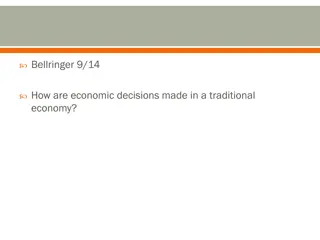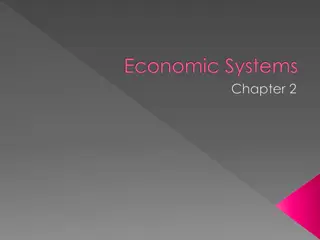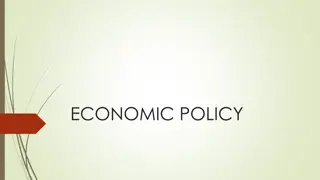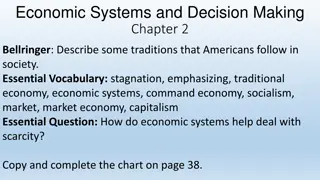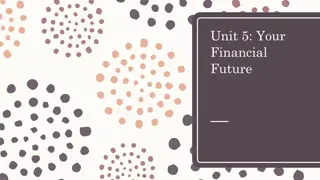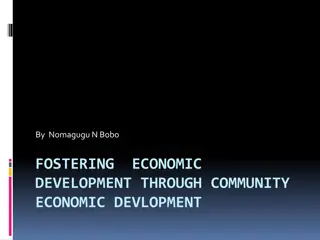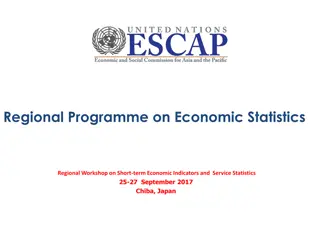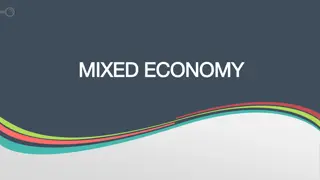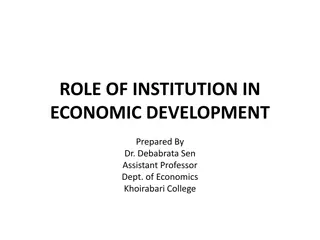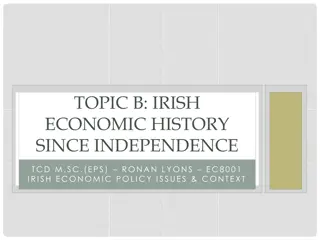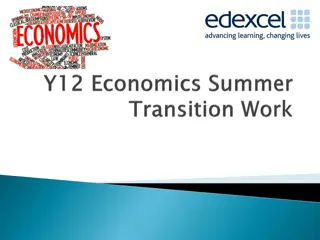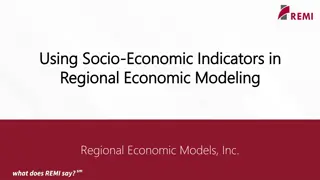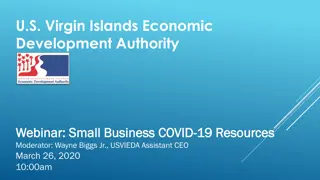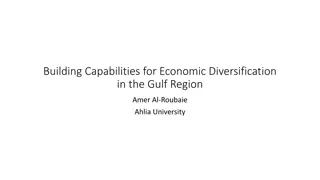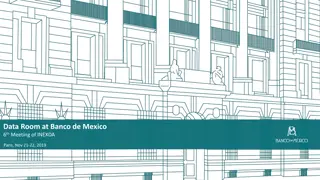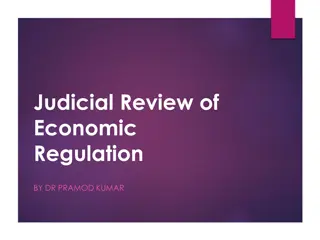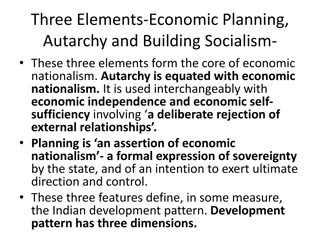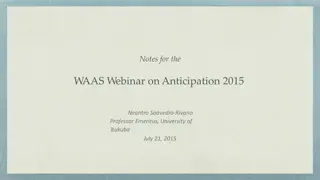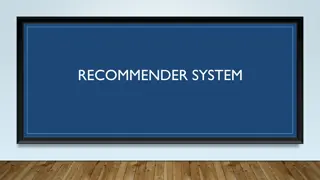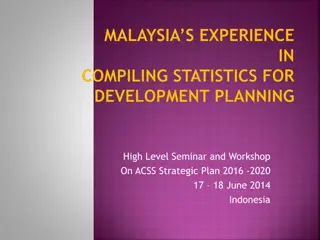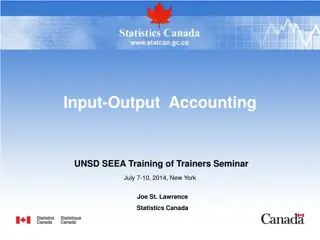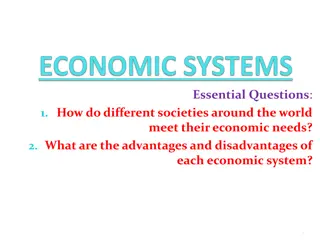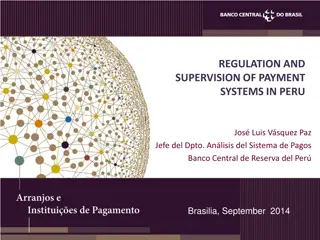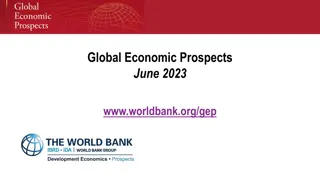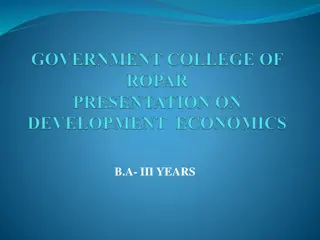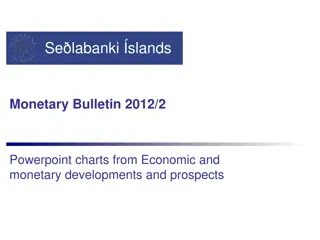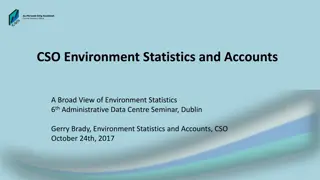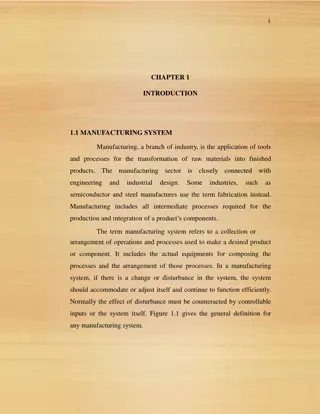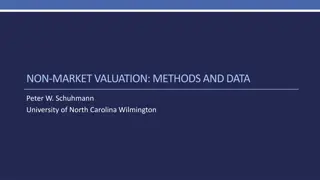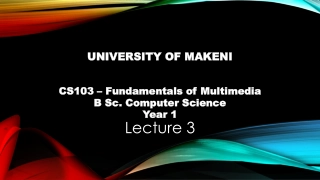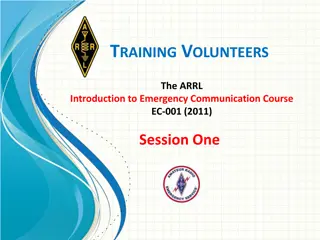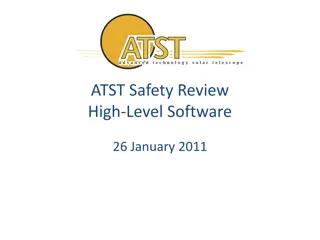Understanding Economic Systems: An Overview
Explore the four economic systems - Traditional, Free Market, Centrally Planned, and Mixed Economies. Learn how societies produce and distribute goods and services and address key economic questions. Discover the differences between economic systems and the importance of answering key economic questions effectively.
Download Presentation

Please find below an Image/Link to download the presentation.
The content on the website is provided AS IS for your information and personal use only. It may not be sold, licensed, or shared on other websites without obtaining consent from the author. Download presentation by click this link. If you encounter any issues during the download, it is possible that the publisher has removed the file from their server.
E N D
Presentation Transcript
Economic Systems In this lesson, students will examine the four economic systems. Students will be able to define the following terms: An Economic System Traditional Economy Free Market Economy Centrally Planned Economy Mixed Economy
Do Now: 2/7/20 What do you think is an Economic System?
An Economic System An economic system is a method used by a society to produce and distribute goods and services. There are three key questions addressed by every economic system: What goods and services will be produced? How will these goods and services be produced? Who will consume these goods and services?
Who will consume these goods? That is a key economic question.
Nations, like people, answer the key economic questions differently.
A Traditional Economy In a traditional economy, people live and work as their ancestors lived and worked. In a traditional economy, we produce what our ancestors produced. produce it the way our ancestors did. distribute it the way our ancestors did.
Its all about the ancestors. Traditional economies do not encourage change.
A Free Market Economy In a free market economy, people are free to buy and sell whatever their money allows. The government does not interfere in the business of business. The individual has complete economic freedom.
In a free market, individuals are free to buy and sell.
A Centrally Planned Economy In a centrally planned economy, the government makes all economic decisions. The government answers the three key economic questions. Karl Marx advocated a centrally planned economy.
Communists advocate centrally planned economies.
A Mixed Economy Modern nations have mixed economies. A mixed economy combines elements of the other three economic systems. However, it is important to remember that nations mix their economic systems differently.
Just as every person mixes a milkshake differently, so, too, do nations mix their economies differently.
Questions for Reflection: Define an economic system. What are the three key economic questions? Describe life in a traditional economy. Describe life in a free market economy. How does a centrally planned economy differ from a free market economy? Why do modern nations prefer mixed economies?
